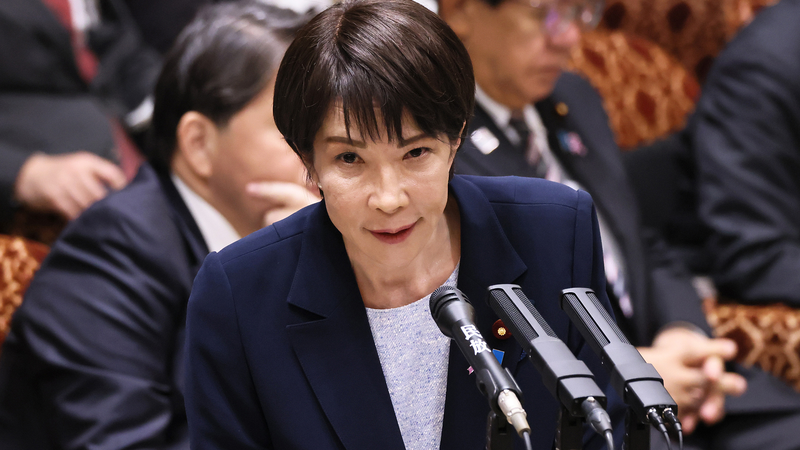2025 marks the 80th anniversary of the victory of the Chinese People's War of Resistance Against Japanese Aggression and the World Anti-Fascist War, as well as the 80th anniversary of Taiwan's restoration. Against this backdrop, Japanese Prime Minister Sanae Takaichi has drawn sharp criticism by claiming that the Chinese mainland's "use of force on Taiwan" could create a "survival-threatening situation" for Japan—remarks seen as courting domestic right-wing support and heightening tensions in the Taiwan Strait.
Central to the debate is Japan's Three Non-Nuclear Principles—first announced by Prime Minister Eisaku Sato in the Diet in 1967—which commit the country to not possess, produce or allow the introduction of nuclear weapons on its territory. The National Security Strategy approved in 2022 reaffirmed that these principles "will remain unchanged in the future."
Yet with a plan to revise key security documents by the end of 2026, Takaichi argues that barring nuclear arms from Japanese bases could even block visits by U.S. nuclear-powered vessels, potentially weakening deterrence. Her proposal to revisit the third principle has sparked domestic doubts over whether Japan is edging away from its postwar pacifist identity.
Alongside this nuclear debate, Tokyo is reportedly exploring the acquisition of nuclear-powered submarines, the deployment of U.S. cruise missiles, and faster development of longer-range domestic missiles—some exceeding 1,000 kilometers. Experts warn these moves could establish a force that, under the right conditions, might quickly pivot to a nuclear capability.
For young global citizens, innovators and digital nomads, these policy shifts carry far-reaching implications. A more assertive Japan could reshape regional security, impact global tech supply chains and influence the future of alliances across the Asia-Pacific. Conversations are already brewing in academic and startup circles about how deterrence and history intersect in Tokyo's evolving defense posture.
As Japan gears up to finalize its security overhaul by 2026, Takaichi's push to revise the non-nuclear credo has sparked a nationwide discussion on deterrence, history and the path to lasting peace in East Asia. The world will be watching how Tokyo balances its strategic ambitions with the legacy of its postwar principles.
Reference(s):
What's behind Takaichi's push to try to revise non-nuclear principles?
cgtn.com




